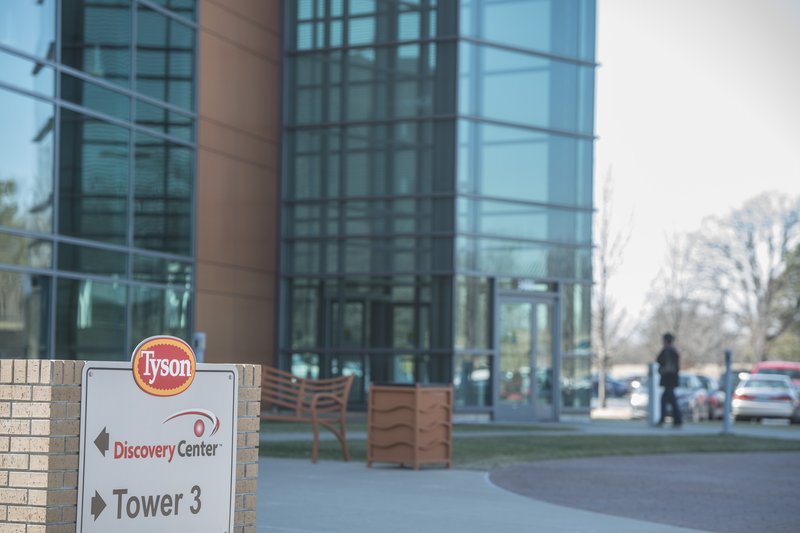Food companies have been working overtime to ensure that chicken thighs, beef tenderloins and other meats fulfill demand during the coronavirus pandemic. Lately, shoppers have been met with empty shelves and meat cases.
In response, Tyson Foods Inc., the nation's largest meatpacker, is shifting production of chicken, beef and pork from restaurant packaging to products suitable for grocery stores. This began last week with Tyson employees fulfilling as many orders as possible through the weekend. The company has been able to adjust production when needed.
"This is the most significant shift we've ever initiated," Tyson spokesman Gary Mickelson said this week.
In recent days Americans have quarantined themselves and are practicing social distancing to curb the spread of the novel coronavirus, which has affected demand across the board. Analyst Ben Bienvenu of Stephens Inc. said shoppers are "clearing shelves in a panic buying frenzy."
[CORONAVIRUS: Click here for our complete coverage » arkansasonline.com/coronavirus]
To meet this demand, buyers have been paying premiums on chicken breast and other household staples to cover their needs, Bienvenu said in a research brief. Meanwhile, restaurants, bars and cafes are closing or reducing hours in response and the food-service sector is slowing. He also said that Stephens is anticipating supply chain disruptions across industries that could result in labor shortages at processing plants.
Tyson, which has 100 plants in the U.S., has no facility closures at this time and is adjusting to ensure a steady stream of food at grocery stores.
"The food supply in the U.S. is more than sufficient and we're taking a variety of measures to meet the shifting increase in demand now, and to ensure a steady supply moving forward," Tyson President Dean Banks said in a company blog post Wednesday. "There is plenty of food available. We are working closely with our retailer partners to ensure our products are on their shelves, so that you have what you need to feed your family."
Chicken producer Sanderson Farms is also taking steps to ensure shelves and meat cases are stocked. Mike Cockrell, chief financial officer of Sanderson Farms, said that all five of its processing plants that do tray-pack chicken were running on Saturday and the company plans to run two shifts this Saturday. Normally the plants operate two shifts, five days a week, processing over 13 million chickens per week.
Cockrell said that while "we can't do that forever," giving workers a break the following Saturday, March 28, they will assess what additional adjustments should be done on a daily basis. Sanderson can convert other plants to process more birds for grocery stores if needed. He said no company plants are closed at this time.
As food companies adjust to feed more Americans at in-person stores, e-commerce activity is soaring. In efforts to meet demand for essential items, Amazon is limiting what suppliers can send to its warehouse to "household staples, medical supplies and other high-demand products," for the next three weeks so it can "more quickly receive, restock and ship these products to customers." Amazon said customers can still buy all in-stock products on the site.
Sanderson and Tyson also have measures in place for employees to work remotely amid the coronavirus outbreak and offers paid sick leave. There were no confirmed cases of the virus within their companies as of Wednesday.
Safeway, Target, Whole Foods and other chain stores are setting aside designated shopping hours for the elderly and people with compromised immune systems.
Business on 03/19/2020
